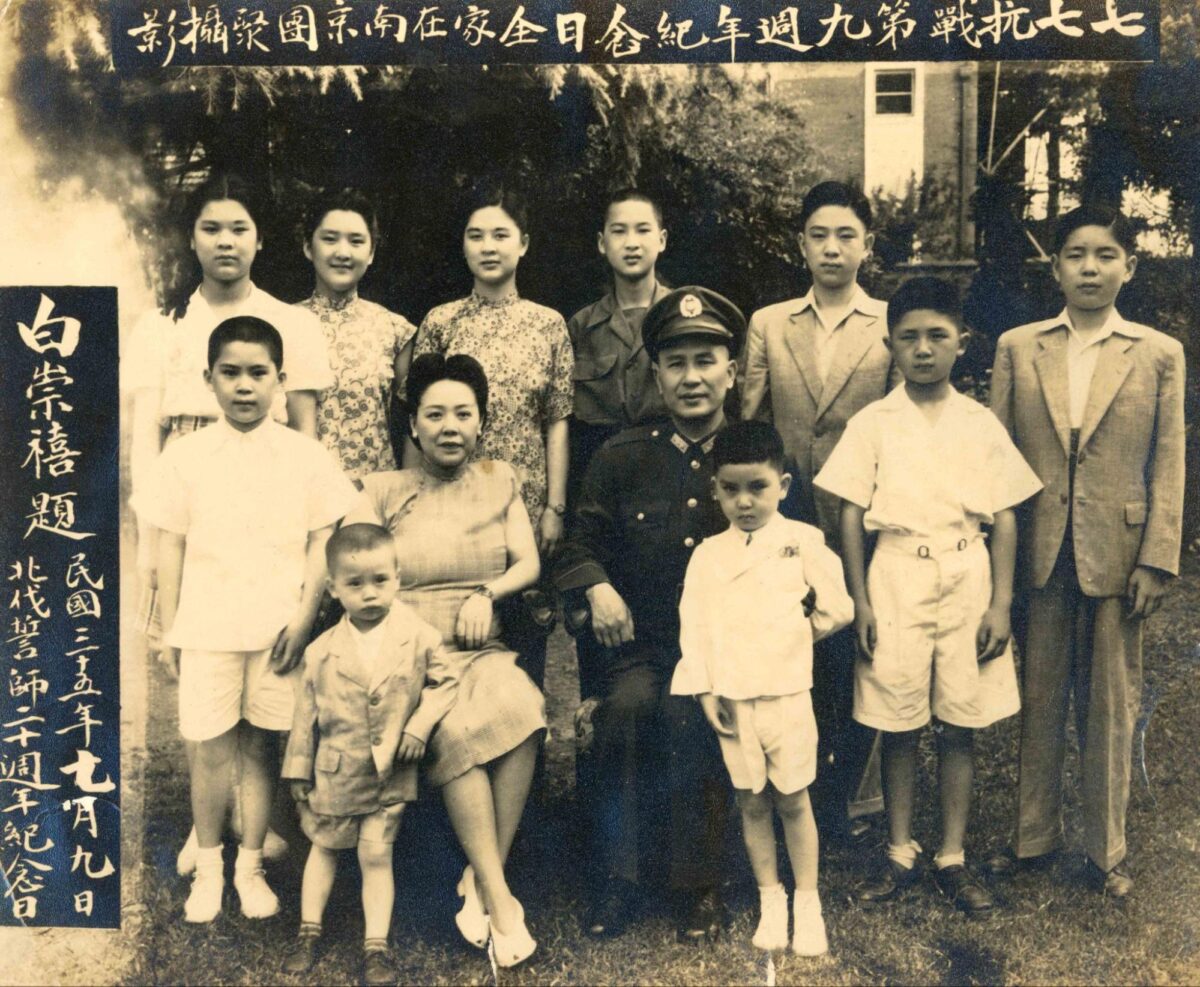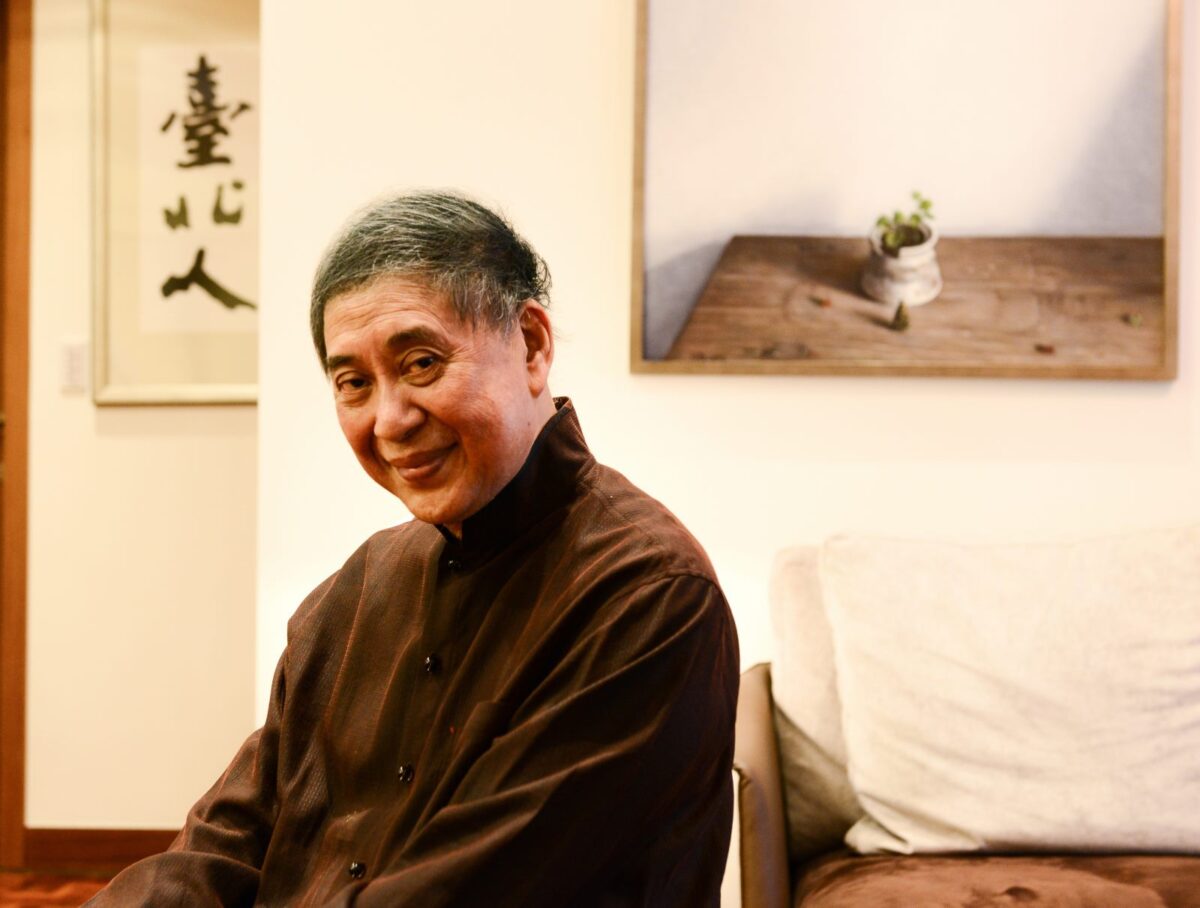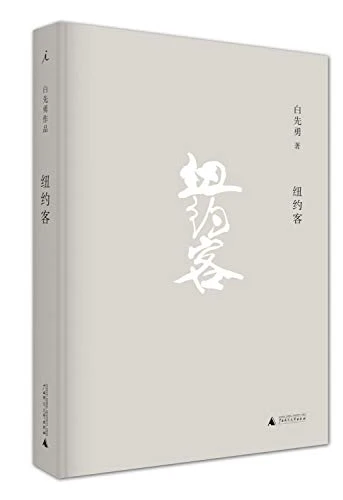Sign up for our newsletter to be notified of new posts!
In 1965 the Chinese Exclusion Act, legislation first passed in 1882 that banned Chinese immigration to the United States, was repealed amid America’s broader civil rights reckoning. A historic wave of immigration from greater China followed — and with it, a new generation of diaspora literature.
The author Pai Hsien-yung (白先勇, also known as Bai Xianyong or Kenneth Pai) witnessed and participated in this wave, moving to America from Taiwan in the 1960s. Though most famous for his work set in Taipei, in New Yorkers (纽约客, 2007), a short story collection written between 1965 and 2003, he turns his pen toward the experience of the Sinitic diaspora. In the six stories that make up the book, Pai chronicles the nebulous lives of ethnically Chinese immigrants in the city. As one of them, a self-exiled HIV-positive Taiwanese man who is the protagonist of “Danny Boy,” writes:
I can feel it — the world with which I was once familiar is rapidly falling apart.
Pai Hsien-yung, too, came from a world that was “rapidly falling apart.” Born in Nanning, Guangxi province, in 1937, he was the fifth son of the Muslim warlord Bai Chongxi, later a general in the Kuomintang army. Pai’s peripatetic childhood was marked by constant warfare: first the Sino-Japanese conflict of World War II and then civil war between the Communists and the Nationalists, in whose government Pai’s father served as Minister of Defense. After the Communist victory in 1949, the Pai family retreated to Taiwan along with the rest of Chiang Kai-shek’s regime.
As a teenager in Taipei, Pai became an avid reader of both Western literature and traditional Chinese classics. After graduating from the foreign language department of Taiwan University, where he founded the magazine Modern Literature (现代文学), he attended the Iowa Writers’ Workshop in 1963, then became a professor of Chinese literature at the University of California, Santa Barbara. In 1971 he published the critically acclaimed short story collection Taipei People (台北人), following the lives of Taipei residents, that was translated into English in 2019 (while one of the stories was adapted into the 2015 Netflix series A Touch of Green). His only full-length novel, The Crystal Boys, a preeminent work of queer Chinese literature, followed in 1983 and came out in English in 1989 (categorized as “erotic fiction,” reductively). New Yorkers, meanwhile, is yet to be translated.
As a teenager in Beijing, I became an avid reader of Pai myself. I grew up immersed in literature, but my father’s enormous collection of Chinese history classics did not fascinate me. Born and raised at the height of the Sino-American honeymoon, American soft imperialism permeated my everyday life. Like every middle-class only-child in Beijing in the early 21st century, I was haughty and in the thrall of foreign culture. Five thousand years of Chinese history was nothing but platitude to me; Lorde’s debut album and The Hunger Games was everything. It was an exhilarating time, when China’s economic success gave every urban family a feeling of social mobility. Students in first-tier cities dreamed of applying to college overseas, especially in the U.S., and I was no exception.
It was during my senior year at a Beijing public high school, during Chinese class, that I first heard about Pai Hsien-yung. The teacher, Ms. Qin, enunciated Pai’s name with such intention and tenderness, along with other labels of his: gay, son of Bai Chongxi, amateur botanist. As she wrote his name on the blackboard, I pulled out the phone I had smuggled into class to buy a copy of New Yorkers on the e-commerce app Taobao, as if committing an act of delinquency.

I had never read anything like it. Pai’s prose was like Eileen Chang’s but more reserved; like the poet Bai Juyi in the form of fiction; or like F. Scott Fitzgerald if he actually cared about women. I imagined Pai standing before me, as graceful as his lyrical, feminine writing. I was an antsy, short-haired teenage girl in a miserable homoerotic friendship with another girl who I constantly resisted the urge to kiss. I did not know what queer meant at the time. Pai was one of the first openly gay Chinese-language writers. Though he never “came out” in the American sense, in his memoir Father and the Republic (父亲与民国, 2012), he writes that his “stern, Confucian father” likely understood and tolerated his sexuality, even though it was never explicitly discussed. I pined for the world of his words, the freedom of his characters. I wanted to go to New York more than anything.
Black sheep from a warlord family, immigrant, queer icon, Pai Hsien-yung is the first brave writer in Chinese.
The stories in New Yorkers map out a paradise for Chinese queers, far from the sexual repression and deep-rooted homophobia of their homeland. In “Tea for Two,” inspired by the eponymous Doris Day song, he portrays a close-knit community centered around a gay bar owned by a homosexual Chinese couple. While the narrative is wrapped around a nuclear family that mimics heteronormativity, Pai crafts a love based on companionship and trust rather than gender and social norms. The couple, diagnosed with HIV during the height of the AIDS epidemic in the 1980s — when a diagnosis was tantamount to a death sentence — decide to sell their bar and spend the remainder of their lives traveling the world together. The cost of the American Dream was death. But in Pai’s words it becomes something greater: holding each other, they dance the nights away, bestowed with a dignity that makes their love timeless.

In “Exiled Immortal’s Lament” (謫仙怨), Pai’s talent for cultural syncreticism is on full display. The title is an allusion to the Tang dynasty poet Li Bai, revered in classical literature as the “exiled immortal” for his ethereal and free-spirited prose. In Pai’s rendering, Li Bai is a metaphor for the ambitious, youthful generation of Taiwanese immigrants in America who are ultimately engulfed by the tides of their new environment.
The heroine of the story, Huang Fengyi, moves to the U.S. as a student, only to lose herself in New York’s material allure. The story opens with Huang’s letter to her mother back in Taipei, telling her that she’s dropped out of college (“We both know I’m not cut out for school”) and recounting the humiliating conditions under which her mother borrowed money from her aunt to pay for her education. Unstated in the letter is that to repay the debt, she has become a sex worker in a seedy East Village nightclub. Also implied is her family’s decline after moving from Shanghai to Taiwan in the 1940s, and the stark contrasts of her life in New York. She feels suffocated and helpless, but also free, as she expresses her mixed feelings:
Buried in this metropolis of millions, I feel I’ve gained true freedom: a freedom to come and go as I please, unnoticed by anyone. Occasionally, some Americans mistake me for a Japanese girl. I simply smile without correcting them, unbothered to deny it, and they end up thinking I’m some enigmatic, mysterious Oriental woman. Mom, isn’t that funny? The best thing about New York is gradually forgetting who you are. I already feel like a bona fide New Yorker. Mama, if I am being honest right now – I wouldn’t find myself anywhere else other than New York.
In writing Huang Fengyi’s character, Pai wrote of his generation: well-educated professionals from aristocratic families in Taiwan, haunted by the fall of the mainland in 1949 as Taiwan slid toward fascism under Chiang Kai-shek. Taiwanese émigrés in New York bore a dual grievance: loss of both the motherland, and their aristocratic identity. The only thing left was their wealth, but that too was running out. The spoiled children of KMT officials in Pai’s tales lose themselves in endless nights of mahjong, cocktail parties by Bryant Park and expensive fur coats. “Exiled Immortal’s Lament” is a nod to Madame Bovary that blends in Americana; the characters are driven by the relentless pursuit of an American Dream that only leads them to be consumed by their own desires.
I question Pai’s notion that an immigrant can forget who they are here. I used to have an insatiable desire to become a New Yorker, yet I find myself feeling more Chinese than ever.
I came to New York as a college student in 2019, and have lived here ever since. Sometimes it feels like I am living a modern version of Pai’s New Yorkers. The hyper-intellectualized bubble of NYU’s Gender and Sexuality Studies program has not taught me nearly as much as a qipao dress drag show in deep Bushwick, or a childhood friend’s wedding to her girlfriend, or a former classmate’s voice deepening as he became the man he always was. Like Huang Fengyi, my generation’s affluence does not ameliorate the lingering inadequacy I feel in America. Pai presents the misplacement and racism that Huang experiences as a microscope of the dehumanization of immigrants, and the hostility they face behind the gilded surface of life in New York. In his telling, the concept of a New Yorker is no more than an oxymoron, since Huang could not even be herself.

Or maybe everyone is a New Yorker, if they cannot belong anywhere else. After decades of Asian immigrants enduring so much prejudice only to be dismissed as a “model minority,” building their lives in a distant home, we are all following in Pai’s footsteps. I think back to Beijing. My generation’s nascent hope was pathetically strong. All these years of absorbing Western soft imperialism through queer media left an irrevocable mark on my heart. Watching Moonlight (2016), I wondered how Pai felt when he might have first watched “queer cinema,” before the Chinese word for queer (酷儿) was even coined.
Maybe I am Huang Fengyi. I don’t mind when I’m mistaken for a Japanese girl in New York. But I question Pai’s notion that an immigrant can forget who they are here. I used to have an insatiable desire to become a New Yorker, yet I find myself feeling more Chinese than ever — more so than I did in China. I believe Pai — who withstood Western influence throughout his life to find serenity in his origins — might feel the same way. In a recent interview with Jiemian Culture, a Shanghai media outlet, Pai said:
In traditional Chinese culture, the elements of emotion and beauty are of great importance. However, after a cultural rupture, our nation has lost confidence in Chinese aesthetics, and the expression of emotions among Chinese people has become awkward and uncertain.
Pai is a master in portraying “emotions and beauty” in his works, but what does he mean by “cultural rupture”? Was it the same reason why I chose to abandon my father’s Chinese classics and turn towards Lorde’s records? Is it too late for a child like me to find her way back home through Pai’s words? I hope that, to some degree, Pai would recognize me as I traverse the frigid haze of New York nights. Though exiled immortals fall, we rise again in another age.
Decades after it was written, as the global political climate veers sharply to the right, Pai’s lyrical prose continues to serve as a refuge for misfits and immigrants. New Yorkers radiates an unsettling paranoia, yet also offers hope in a precarious time — that in-betweenness and ambiguous identities are not weakness but strength. Pai Hsien-yung: his given name means “first brave.” Black sheep from a warlord family, immigrant, queer icon, he is the first brave writer in Chinese. ∎
Header: Pai Hsien-yung with his father, Bai Chongxi, at Taipei’s Songshan Airport before Pai’s first trip to America in 1963. (Father and the Republic 父亲与民国, Pai Hsieng-yung, 2012)

Winifred Dongyi Wang (王东怡) is a bilingual writer based in New York. Born and raised in Beijing, she left to study at New York University, earning her BA in History (magna cum laude) and MA in Experimental Humanities and Social Engagement. Wang’s work also appears in Cha and Sixth Tone, and she is a Spring 2025 fellow at Accent Society. Her first novel Dissection of the Moon (千里共婵娟) is forthcoming.



